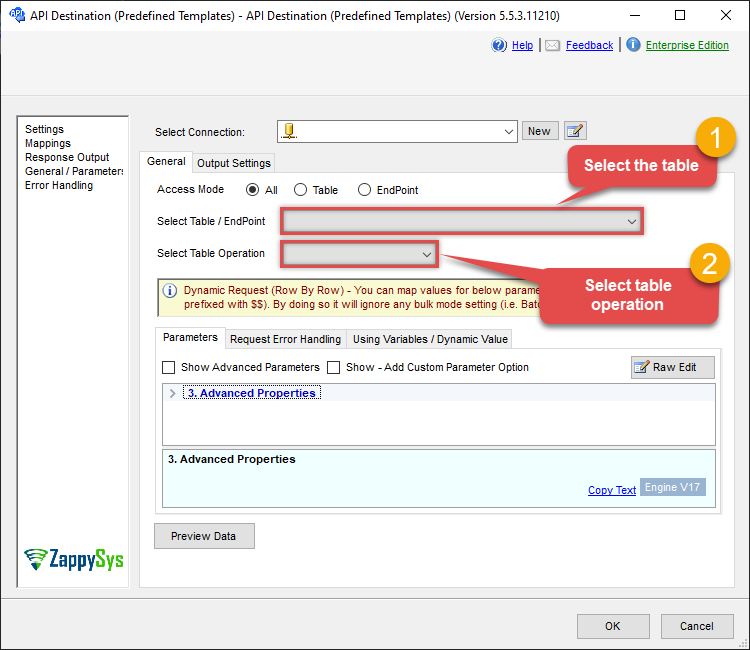Endpoint Create Line Items
Name
create_lineitems
Description
Related Tables
Parameters
| Parameter | Required | Options | |||||||||||||||||||||||||||||||||||||||||||||||||||||||||||||||||||||||||||||||||||||||||||||||||
|---|---|---|---|---|---|---|---|---|---|---|---|---|---|---|---|---|---|---|---|---|---|---|---|---|---|---|---|---|---|---|---|---|---|---|---|---|---|---|---|---|---|---|---|---|---|---|---|---|---|---|---|---|---|---|---|---|---|---|---|---|---|---|---|---|---|---|---|---|---|---|---|---|---|---|---|---|---|---|---|---|---|---|---|---|---|---|---|---|---|---|---|---|---|---|---|---|---|---|---|
| There are no parameters | |||||||||||||||||||||||||||||||||||||||||||||||||||||||||||||||||||||||||||||||||||||||||||||||||||
Output Columns
| Label | Data Type (SSIS) | Data Type (SQL) | Length | Description |
|---|---|---|---|---|
| Id |
DT_I8
|
bigint
|
||
| IsArchived |
DT_BOOL
|
bit
|
||
| CreatedAt |
DT_DBTIMESTAMP
|
datetime
|
||
| UpdatedAt |
DT_DBTIMESTAMP
|
datetime
|
||
| [Dynamic Column] |
DT_WSTR
|
nvarchar(2000)
|
2000 | [$parent.label$] |
Input Columns
| Label | Data Type (SSIS) | Data Type (SQL) | Length | Description |
|---|---|---|---|---|
| [Dynamic Column] |
DT_WSTR
|
nvarchar(2000)
|
2000 | [$parent.label$] |
Examples
SSIS
Use Hubspot Connector in API Source or in API Destination SSIS Data Flow components to read or write data.
API Destination
This Endpoint belongs to the LineItems table, therefore it is better to use it, instead of accessing the endpoint directly. Use this table and table-operation pair to create line items:
| Optional Parameters | |
|---|---|
| NextUrlAttributeOrExpr | $.paging.next.link |

ODBC application
Use these SQL queries in your ODBC application data source:
Create Line Items
-- We are out of SQL query examples for this Endpoint, sorry!
-- But will try to get some very very soon!
create_lineitems endpoint belongs to
LineItems
table(s), and can therefore be used via those table(s).
SQL Server
Use these SQL queries in SQL Server after you create a data source in Data Gateway:
Create Line Items
DECLARE @MyQuery NVARCHAR(MAX) = '-- We are out of SQL query examples for this Endpoint, sorry!
-- But will try to get some very very soon!';
EXEC (@MyQuery) AT [LS_TO_HUBSPOT_IN_GATEWAY];
create_lineitems endpoint belongs to
LineItems
table(s), and can therefore be used via those table(s).
